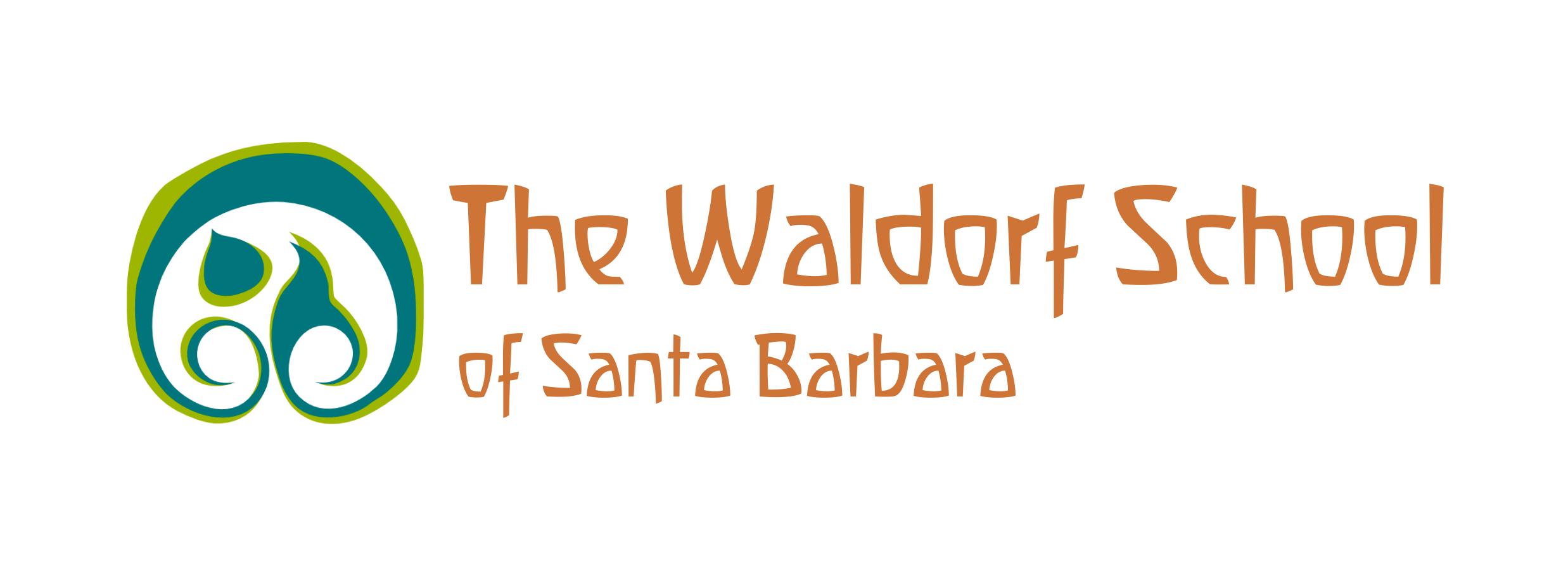Our Real Work
Dear Member of The Waldorf School of Santa Barbara Community,
In this stressful and fertile time, it is perhaps worthwhile for us adults to ask some back-to-the-basics questions:
· What kind of world do we do want to create for our children?
· What are the best things for them to learn right now?
· What outlooks, values, and skills do we want to pass on to them?
· What "inner work" might we have to do to be able to show up for the children well?
· How is our collective tendency to be overcome by dispersion and distraction making it hard on the children in ways we are disinclined to admit and own?
Before you read on, please take a moment to ponder each of the above questions. Please don't see them as remotely abstract. And if you feel baffled, don’t despair:
It may be that when we no longer know what to do
we have come to our real work,
and that when we no longer know which way to go
we have come to our real journey.
The mind that is not baffled is not employed.
The impeded stream is the one that sings.
Wendell Berry
"It is time, I believe, for an educational ‘perestroika,’" writes David W. Orr in his book Earth in Mind, "by which I mean a general rethinking of the process and substance of education at all levels, beginning with the admission that much of what has gone wrong with the world is the result of education that alienates us from life in the name of human domination, fragments instead of unifies, overemphasizes success and careers, separates feeling from intellect and the practical from the theoretical, and unleashes on the world minds ignorant of their own ignorance."
Strong words! But words that strike us as oddly affirming here at WSSB, where we humbly strive to redress such alienation, fragmentation, and separation; where we humbly strive to sponsor a success that’s unbeholden to the status quo; where we humbly strive to live into an education with "earth in mind."
"The best way to take care of the future," said the late, great Thich Nhat Hanh, "is to take care of the present moment."
May we take care of the present moment by slowing down and making time for the children and each other; may we do so by -- borrowing from Reverend Dr. Jacqui Lewis -- contracting not into "limited sympathies and unlimited certainties" but opening to "limited certainties but unlimited sympathies"; may we do so by continuing to see our children as our collective responsibility and sacred trust.
Important Notices
* The following is a generous, gracious invitation to study Rudolf Steiner and Anthroposophy with the Helen Hecker Group:
"THE FOUNDATION STUDIES GROUP begins again with Rudolf Steiner's book 'How to Know Higher Worlds' on Monday evenings and welcomes new friends to study with us.
We currently meet via Zoom. We meet at 6:15, begin study at 6:30, and finish promptly at 8. For an introduction to the books generally studied see
https://www.anthroposophysantabarbara.org/lending-library.html.
The study will remain open to newcomers through the month of February, at least. Generally, once we've made progress in the current book we ask those new to study to join at the beginning of the next book. We encourage anyone interested in study, however, to get in touch with us at any time. If a study opportunity is delayed because a book is in progress, we are available in the meantime to answer questions and be in conversation. If there is interest, we are open to organizing a study group on campus once Covid protocol allows in-person gathering.
We are here to support one another, and dedicate our studies in weekly affirmation to the health and vitality of The Waldorf School of Santa Barbara.
info@anthroposophysantabarbara.org
Warmly, with Blessings,
The Helen Hecker Group"
***
In gratitude,
The WSSB Admin Team
PS The thought of the day is by Astrid Schmitt-Stegmann:
"The unfolding human development is a beautiful and sacred thing. As Waldorf class teachers, we are midwife to this sacred unfolding of the child's individuality as it reveals itself more and more with healthy, life-filled education. Waldorf education takes the inner being of each person into consideration and understands its task to be the reverent holding and nurturing of this inner being."
